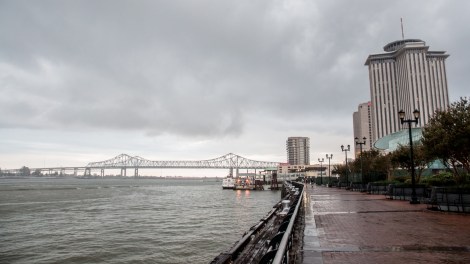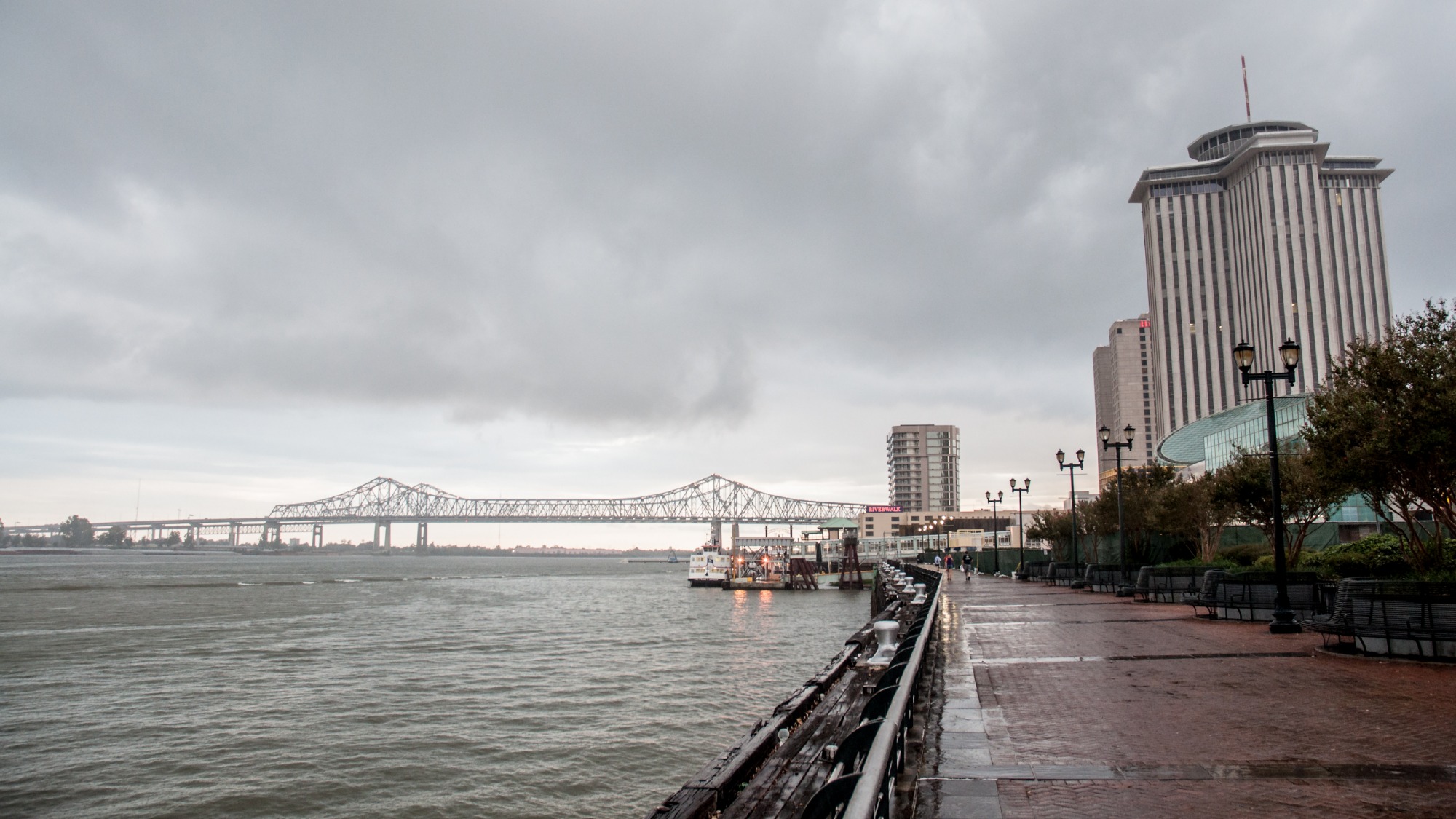
ShutterstockThe Mississippi River in New Orleans.
The oil industry is a champion of innovation. When it comes to finding new ways of sullying the environment, its resourcefulness knows no bounds.
An oil-hauling barge collided with a vessel pushing grain in the Mississippi River on Saturday, causing an estimated 31,500 gallons of crude to leak through a tear in its hull. The accident closed 65 miles of the already disgustingly polluted waterway upstream from the Port of New Orleans for two days while workers tried to contain and suck up the spilled oil.
The accident highlighted a little-noted side effect of the continent’s oil boom. Not only is crude being ferried from drilling operations to refineries in leaky pipelines and explosion-prone trains — it’s also being moved over water bodies with growing frequency. Bloomberg reports:
“We’re facing the imminent risk of a barge disaster or a rail disaster” as more oil is shipped to the Gulf of Mexico for refining, Jonathan Henderson, a spokesman for the New Orleans-based Gulf Restoration Network, said by phone after attending a meeting with U.S. Coast Guard officials. …
Barge and tanker shipments of crude from the Midwest to the Gulf Coast jumped from virtually nothing in 2005 to 21.5 million barrels in 2012, according to the U.S. Energy Information Administration. The U.S. Gulf received a record 4.9 million barrels of crude from the Midwest in October.
And if the Coast Guard gets its way and lets frackers ship their wastewater on barges, next up could be spills of radioactive liquid waste containing undisclosed chemicals.



